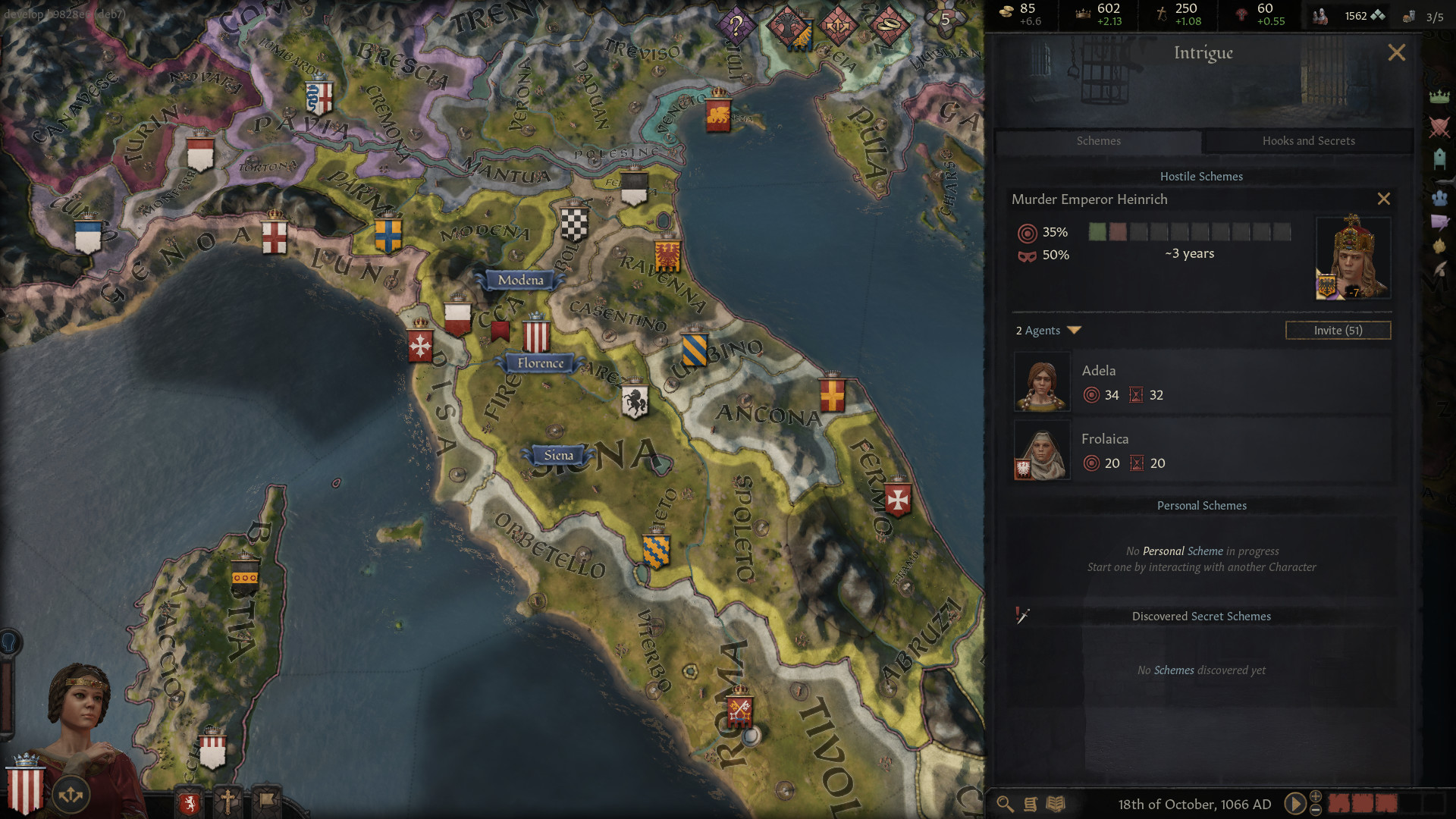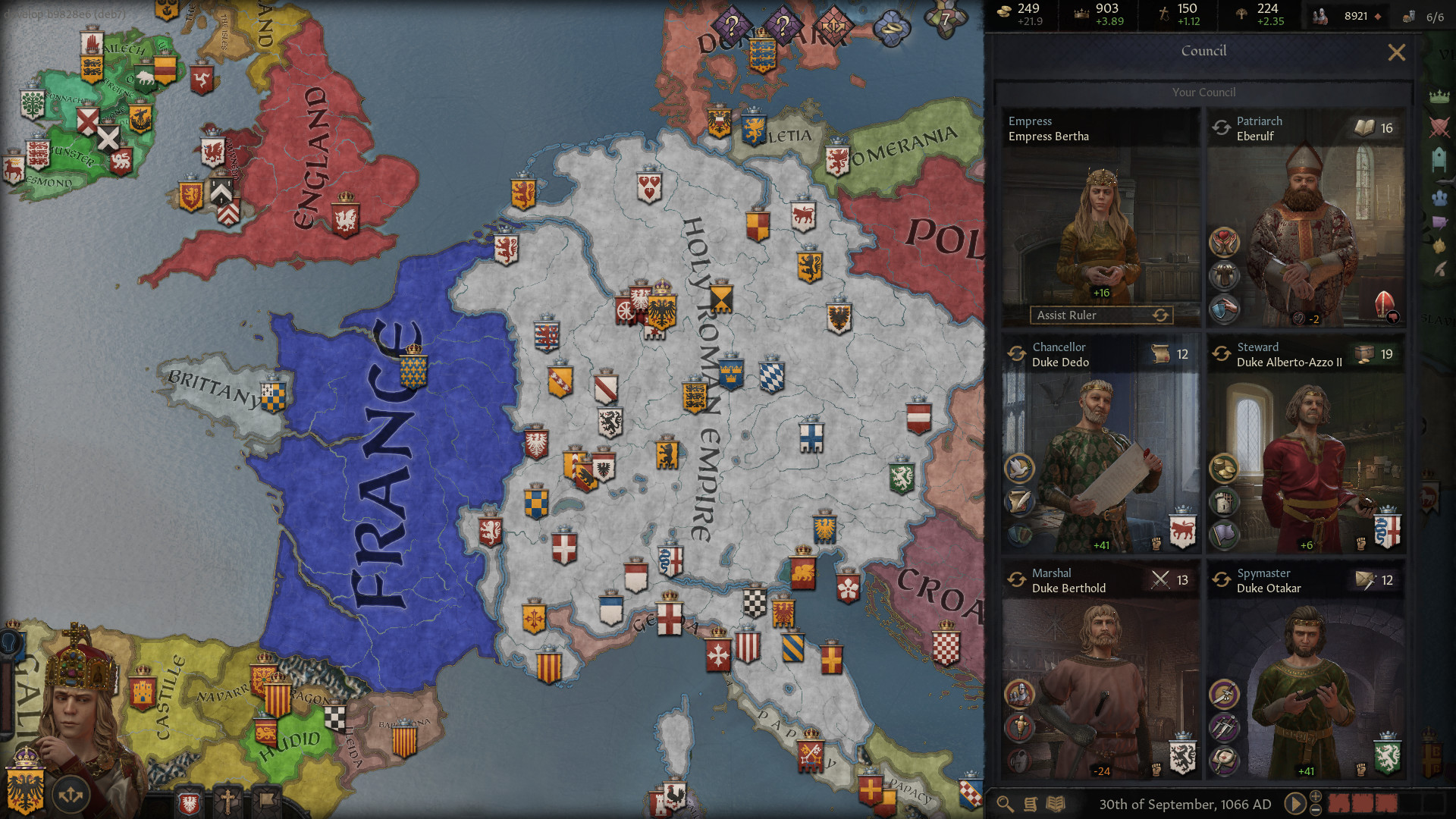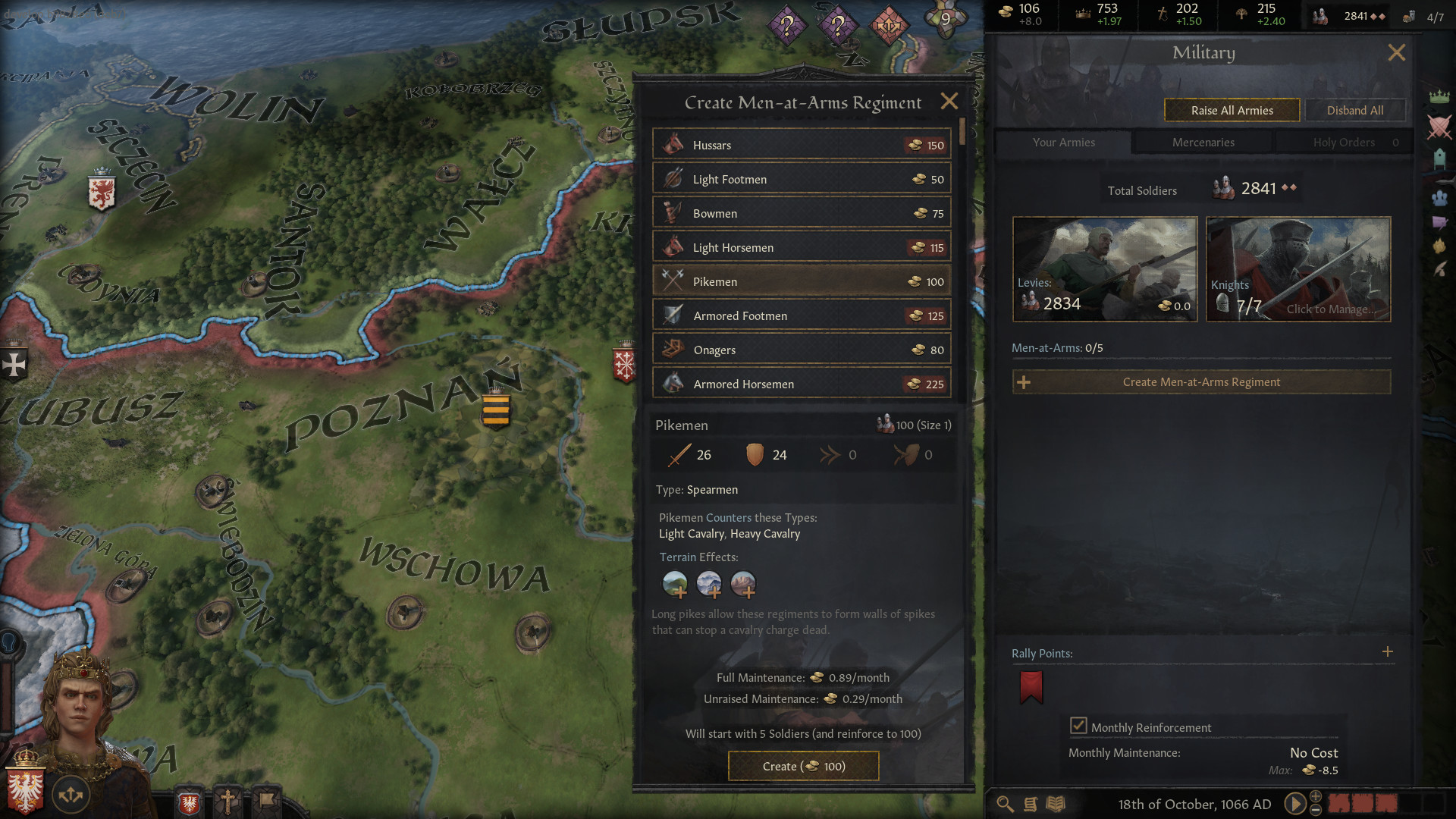Crusader Kings III review
I have made many, many mistakes during my time in control of three generations of the Petty Kings of Munster. I once imprisoned and executed a Vassal for daring to insult me during an exchange of letters, trusted the wrong man with secrets about my family’s history, waged war against a woman who I had previously spurned that decimated my armies. I raised at least two sons on the wrong path, married a daughter off to a traitor and made drunken promises at feasts that I could never keep. And yet, Crusader Kings III has never outright punished me for any of it.
Because mistakes, while costly, are how kings and queens and emperors learn to be better. When my first king died at the ripe old age of 65 leaving a small trail of enemies and broken hearts, his grandson took the throne and ruled the kingdom in a fairer, yet ultimately too timid, fashion. Where the first King, Murchad, was a hunter and a fighter, his grandson Felic was a thinker, a writer, and a man of mercy. Both are viable ways to rule – and both combined are but the tip of Crusader Kings III’s spear.
Having little to no knowledge of the series before this game I stared at the tutorial screen like a budgie trying to figure out quantum physics for a while before I decided to send it all to hell and learn by doing. I hurried through the rest of the tutorial and then set about making decisions, and within a few hours I began to understand the complexities of governing an ever-growing and ever-tumultuous kingdom.

Although you can’t create a kingdom from scratch, there are dozens of rulers to choose from when starting a new game, and an expansive, comprehensive suite of difficulty options to craft an experience that suits you. From the off you’ll choose a focus for your ruler, though, which will determine how they “level up”. For example if you choose to focus on Diplomacy you’ll advance through 3 skill trees that improve and unlock traits and strategies that help you circumnavigate conflict, unlocking extra options such as “Befriend” when dealing with other characters. The Martial focus improves the strength and prowess of your troops; Learning increases your book smarts, allowing you to outwit and beguile your peers and enemies. If you intend to be rich and prosperous, Stewardship is the focus for you, while Intrigue allows for all manner of skullduggery and espionage.
You then set out with a deceptively straightforward objective: rule everything. Time advances swiftly, and you’ll see your children born and grow up, then grow old, with the heirs becoming your player characters once the previous rulers die of old age, disease or foul play. You must govern every aspect of the kingdom itself, including taxes placed on vassals, which settlements to upgrade or improve, how much of a standing army you’ll need to keep and maintain. And in between, you have more intimate matters to attend to, such as organising feasts or calling hunts, making friends, avoiding treachery and growing your dynasty.
A small Council of advisors is selected from your Vassals, family members and courtiers, each primarily concerned with one of the five focuses, and where possible you’ll need to select Council members with traits that match their role. For example, your Spymaster needs to be well-versed in Intrigue, or any attempts made by you to gather information, subvert the enemy or even murder a rival will fail and you’ll be exposed. Likewise, a poor Steward will bankrupt you and have you begging the Church for funds to get you through the year.

There’s so much to learn that you would expect it to overwhelm, but thanks to a constantly changing list of immediate objectives and regular advice it soon becomes quite intuitive – but it’s still easy to make mistakes. Your children need educating, and you will need to find suitable tutors; your offsrping, family members and Knights will need to be married to form alliances and bring dowries. Wars are costly but sometimes unavoidable, and sieges can last for years and drain your coffers dry. But it’s in the minutiae that I found Crusader Kings III’s heart. Naming your children, for example, and watching them grow into fine adults. Deftly manoeuvring around a murder plot, or overthrowing a coup before it can come to fruition. Making a friend for life who will step in and loan you money or relieve your stress by taking you away for a trip or coming to your aid in times of war.
Each character – every single one, and there are thousands – has traits and needs, desires and dislikes. Many have armed consorts of their own, and most have secrets. If you find these secrets either by fair means or foul, you’ll unlock a “Hook”, which can be used in your favour to extort gold or blackmail them to do something they otherwise wouldn’t want to. You can pair spouses by their personalities, appeal to another ruler’s ego, ply them with gifts, or befriend, romance, seduce or murder them. Titles are yours to bestow and revoke, although you risk upsetting at least one other character whenever you do this – and the threat of invasion is ever-present.
My kingdom of Munster seemed prosperous during my second generation. I had sent troops to fight in the Crusades and been handsomely rewarded, had a list of strong alliances, my son had overcome consumption and a petty nature to become an honourable knight and general. But then an invader from northern Europe came over with four times the fighting men and raided up and down my coast, destroying my armies and seizing two of my cities. And then, as I desperately concocted plans to murder him in his court, he promptly died of natural causes and his successor withdrew his troops, leaving my kingdom in a sudden and tentative peace.

War is a complex beast in Crusader Kings III. In order to wage it you’ll need a claim, which is given – at least in the Christian kingdoms – by the Church. The Pope, in this case, must approve of your claim and allow you to go to war, at which point you’ll besiege the cities of your new enemy or meet them in the field. The conflict is played out with a basic animation on the world map with a slider to determine army strength, but it’s still tense each time to know there’s always so much riding on it. And when the war is won, you’ll need to install Vassals to govern your new constituency, which can then choose to betray you themselves.
Religion plays a huge role, too, and depends on which part of the world you’re in. Regardless of where you are, though, your faith will determine many things. From Council members to the treasury, to whether or not you’re called to fight in a holy war or whether you can simply chuck it all in for a few years and go on a pilgrimage – religion is important. With enough influence and renown you can denounce your current faith and install your own, deciding which tenets and doctrines matter and ignoring the often over-bearing influence of the historical religions.
To call Crusader Kings III “big” would be incredibly reductive. This is a game seemingly without walls, wherein you can scheme and govern and duggery various skulls on an endless loop of successes and failures. It will take considerable time for newcomers to understand its systems, while veterans will only need to contend with the changes to established mechanics and the greater depth given to certain systems. But it’s also a hugely compelling game – you’ll constantly have so many fingers in so many pies, will be forever watching so many schemes and conflicts unfold, and you’ll spend so much time sleeping with one eye open that you’ll barely notice the grey creeping into your hair. When a long-trusted councillor dies, or someone you thought was a friend turns on you out of greed, or when you win a hard-fought victory – that’s where Crusader Kings III shines.
Aesthetically it’s a good looking game, with detailed character models and mostly accurate maps of ancient kingdoms – I even found my home town circa 1066, which was interesting. Some of the characters look very much alike, and the animations on the world map are a little basic, but they do what they need to do. With the option to wage war with or against friends and strangers in expansive online campaigns there’s also potentially hundreds of hours of courtly intrigue to be had, and though there are occasional dips in the pace when you’re enjoying a few years of peace, most of the time you’ll be too busy to notice the passage of time.
Crusader Kings III is an excellent kingdom management game, more intimate but no less intricate than the likes of Civilisation VI, it’s as unforgiving a simulation as you’re going to find while still being more fun than you’d expect it to be. It’s not an easy game to get to grips with, and there are moments where you won’t be able to declare a war or prevent one and it won’t always be clear why – and there is an awful lot to read and understand – but Crusader Kings III is still arguably the best way to play out your Game of Thrones fantasies without actually harming your family members.





